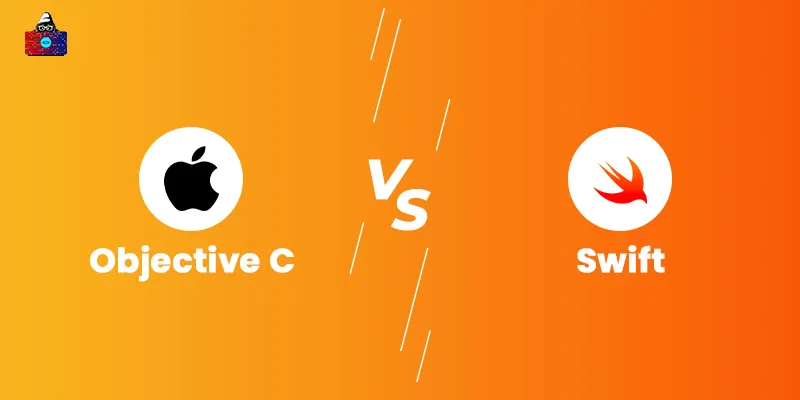With the release of the first iPhone in 2007, Apple declared Objective C as the official programming language for iOS (iPhone Operating System) app development. However, in 2014, Apple introduced ‘Swift’ as a new programming language based on Objective C and C for its iOS app development. Today, Apple uses both Swift and Objective C for developing applications for iOS devices. This gives rise to a popular debate, i.e. Objective C vs Swift as many developers often wonder which programming language among them is a better choice.
This article aims to compare Objective C and Swift to highlight all the key differences between them. But before we start with the comparison, let us have a brief overview of each programming language.
Objective C vs Swift: Overview
Here's a quick overview of both programming languages.
Objective C
Objective C is an object-oriented & general-purpose programming language, and it is a superset of the C programming language . It was developed by Brad Cox and Tome Love back in 1980, and it is used by NeXT for its NeXTSTEP operating systems. Before Apple introduced Swift, Objective C was the main programming language for developing iOS and macOS apps. With time, Objective C has become obsolete, but still Apple uses Objective C for iOS app development.
Swift
Apple Inc. had developed this programming language as a replacement for its veteran programming language Objective C. It is designed for the further development of iOS, macOS, watchOS, and tvOS. On 2 nd June 2014, Apple announced Swift as its official language for developing apps for all its operating systems. It was originally designed by Chris Lattner, Doug Gregor, John McCall, Ted Kremenek, Joe Groff, and Apple Inc. Soon after the launch of Swift, it started to gain widespread popularity because when compared to Objective C, it is easy to learn and implement. Like Objective C, Swift can also work with Cocoa and Cocoa Touch frameworks.
Objective C vs Swift: Head to Head Comparison
| Objective C | Swift |
|
Learning Curve |
|
| As compared to Swift, Objective C is quite difficult to learn. | Swift is easy to learn as it has a simple syntax. |
|
Cocoa Framework Support |
|
| Objective C can work with both the Cocoa and Cocoa Touch frameworks. | Swift was specifically designed to work with the Cocoa touch framework though it can work with the Cocoa framework too |
|
Interoperability with C++ and C |
|
|
|
|
Performance |
|
| Objective C is fast and offers impressive performance. | Swift is faster than Objective C. |
|
Namespaces |
|
| Objective C doesn't support namespaces. This could cause conflict while declaring variable names in various scopes. | Swift has complete support for namespaces. |
|
Code File |
|
| Objective C work on two file requirements, which means that developers have to update and maintain two different files of code. | In Swift, developers do not need two different files. They need to update and manage only a single file. |
|
Compiler |
|
| Objective C compiler works the same as C compiler. | Swift uses LLVM (Local Level Virtual Machine), which works faster and smarter than the C compiler. |
|
Pointer |
|
| Objective C uses a pointer, which increases the complexity of a program. The use of a pointer can give direct access to the data that makes a program unsafe. | When it comes to Swift, it does not use a pointer, thus programs created with Swift are simple and safe to use. |
|
Memory Management |
|
| Objective C is an object-oriented programming language and it is prone to a memory leak which is often seen in OOP languages. | Swift has its own APIs to handle memory leaks and provide better memory management. |
Conclusion
As Objective C has become obsolete, it does not have a bright future. So, if you want to be an iOS developer, you should choose Swift as your primary programming language. Today, Apple uses Swift on a great scale because of its powerful features, fast performance, and growing community. We hope that you have learned all the important differences between Objective C and Swift that will make it easier for you to choose the right programming language for your journey as an iOS developer.
People are also reading:




